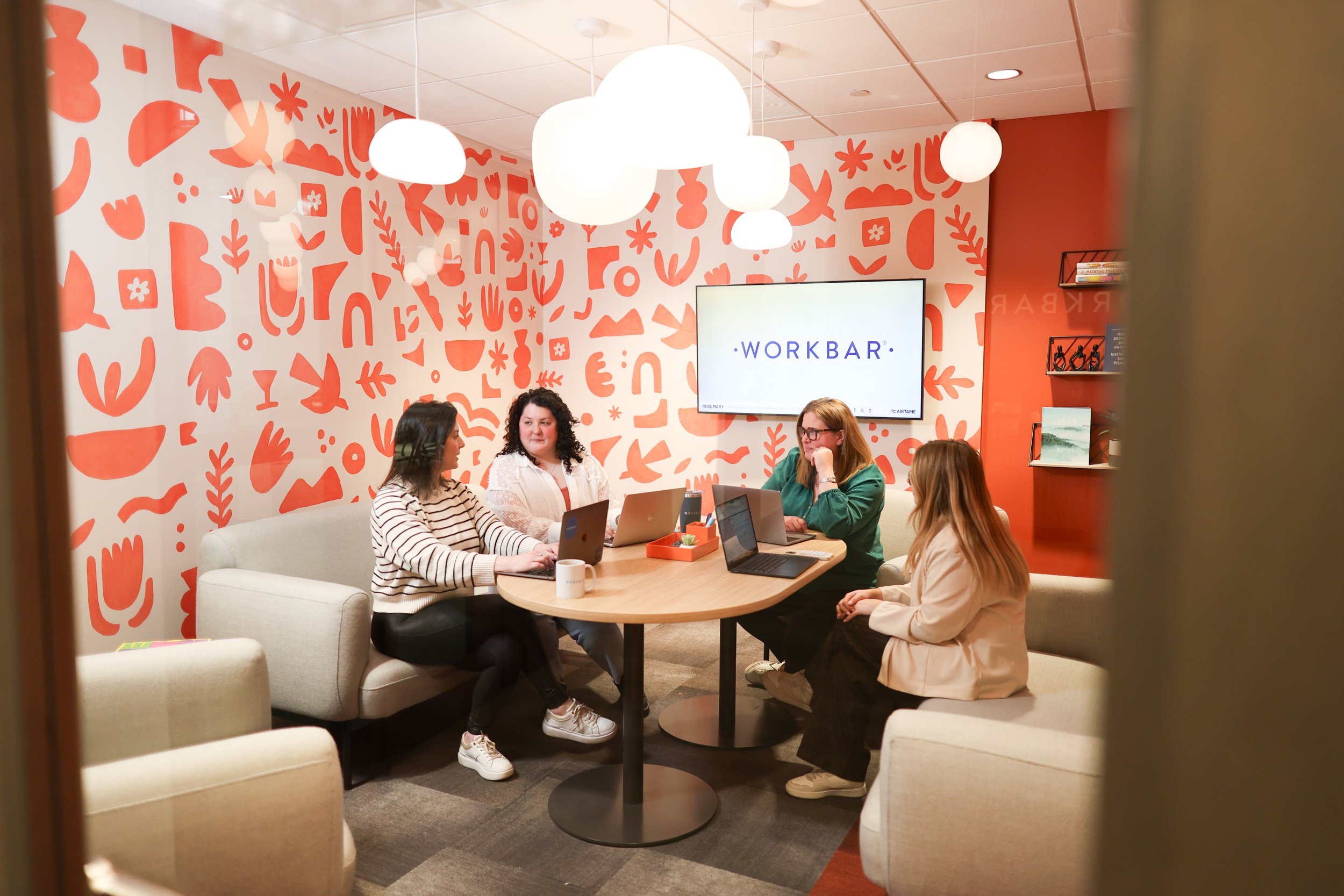The Way People Work Has Fundamentally Shifted: Making Work Work, CEO Series Vol. 1

When I became CEO of Workbar in May 2018, the company was operating out of a 7,000-square-foot basement across from South Station. It was raw, open, and scrappy, in the best and most chaotic sense of the word.
Coming from Regus, I had never seen Workbar as a competitor. We never lost deals to them, only to traditional space and later, WeWork. If someone came to tour Regus after seeing Workbar, I’d ask if they were seriously considering it, because it was rare for someone to evaluate both products. Let’s just say we had very different audiences.
That space represented what coworking was in 2009. Not shared office space. Not flex space. Coworking. Digital nomads and startup founders. There were a few private offices, but they didn’t have numbers, and I’m pretty sure we weren’t even charging rent for them. One of our most popular memberships used to be the Nights and Weekends plan, because that’s how people worked back then. Side hustles, passion projects, freelance gigs, they all came to life after hours. It was a product of its time, and it worked. We sunsetted that membership a few years ago, not because it wasn’t valuable, but because the way people work has fundamentally shifted.
But back then, that off-hours energy defined the culture. The people who filled the space brought a fierce sense of ownership and community. It wasn’t polished, but it was personal. People were proud to grind it out in that basement. They wore it like a badge of honor.
While our intentional layout—the neighborhoods, the openness—was already in place, the vibe was entirely different. It was bootstrapped, it was functional, and it reflected exactly where we, and our members, were in that moment.
Lately, I’ve seen a wave of LinkedIn posts from founders who were there in those early days, tagging Workbar as part of their origin stories. It makes me so proud that we played a role in their success.
And while today’s members are still channeling that same entrepreneurial energy, the experience has evolved. The grit is still there, but now it’s paired with more polish, more scale, and more purpose.
When I started in this industry in 2001, we talked about remote workers as road warriors, usually middle-aged men with briefcases and sales targets, living out of cars, grateful to find a place to stop in and plug in (back when cell phones and Wi-Fi weren’t a given). Today, remote and distributed work is the norm. And today’s workers aren’t just looking for a desk, they want hybrid work solutions that offer structure, flexibility, and community in equal measure.
Let's be honest, solving for everyone on a team is hard. Balancing geography, personalities, and preferences can test even the most patient leader. With a customized Workbar solution, you don’t have to send out an employee survey and be forced to go with the majority. You can give everyone what they need, without compromise. A workplace that works for all of them, no matter where they live or how they like to work.
We may look different than we did in 2009, but you’d still know us anywhere. We've expanded from one downtown location to a growing regional network of 11 coworking spaces across Greater Boston. Whether our members are looking for suburban coworking, a place to work near home, or a space to gather a team for the day, Workbar offers flexible workspace options that meet people where they are. We still have plenty of startups and founders roaming our spaces but more often than not, you’ll find teams from Fortune 500 companies.
Workbar works for everyone. Whether you're a freelancer, a startup founder, or part of a distributed enterprise team, we saved you a seat.
.jpg?width=352&name=125A8554%20(1).jpg)
.jpg?width=352&name=WorkbarFramingham-199%20(6).jpg)
